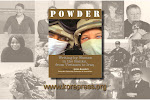
Sex gets used a lot of ways–and a number of them are not about shared pleasure and connection. I have written about political sex scandals and the way generations of youth get shamed about their sexual norms. Though it may be facile, I find myself noting “the more things change, the more they remain the same” — the issues change a little bit but the use of sex as a tool of power and control, not so much.
This is sex as political football. Sometimes the games have the veneer of lightness, like a game you play after Thanksgiving dinner. Today, though, I was writing about the use of rape as tool of war.
In 1996 the International War Crimes Tribunal focused on rape in the Bosnian war, and prosecuted people involved. Discussion of one of those prosecutions was here, and this quotation gripped me:
In a reply to his accusers, Mr. Mejakic, who along with others under indictment remains safely in Serb territory, described Ms. Cigelj as being old and unattractive; he added that he wouldn’t have leaned his bicycle against her, much less raped her.
And then I looked at this, from 20 years later, last month:
Donald Trump on Thursday adamantly denied claims he forced himself on a People Magazine journalist more than a decade ago, responding to her accusation of sexual assault by saying, “Look at her … I don’t think so.”
That’s today’s brief reflection on normalization, 1996-2016.











 We’ve been marinating on 2008; what an incredible year! Turbulent, exciting and really most of our wishes seemed to be granted in one fell swoop with the outcome of the US election.
We’ve been marinating on 2008; what an incredible year! Turbulent, exciting and really most of our wishes seemed to be granted in one fell swoop with the outcome of the US election. It’s hard to believe that election day is now less than a week away. The
It’s hard to believe that election day is now less than a week away. The 



